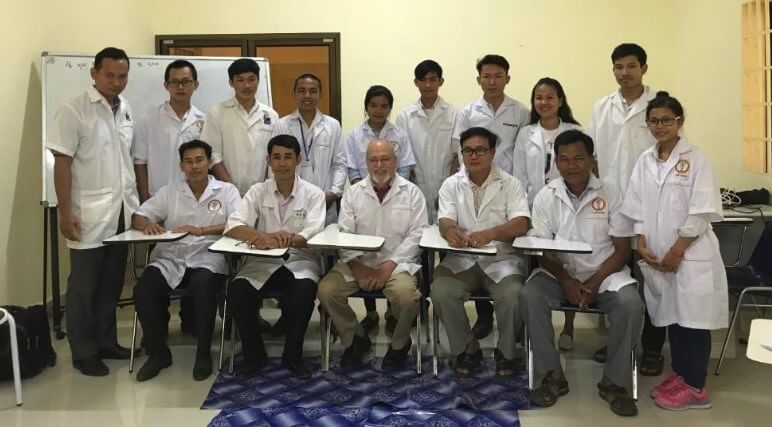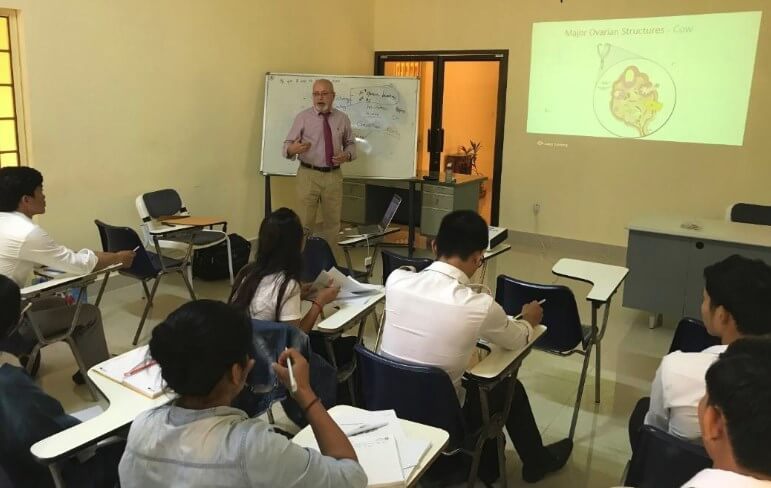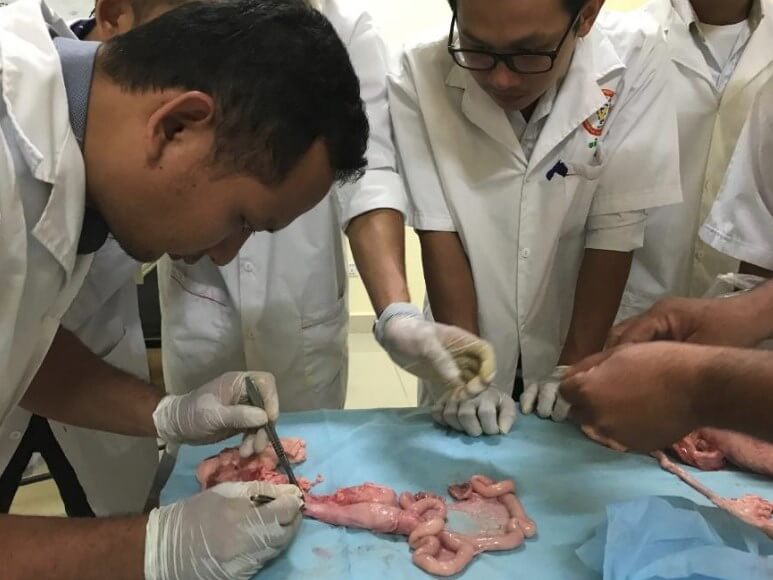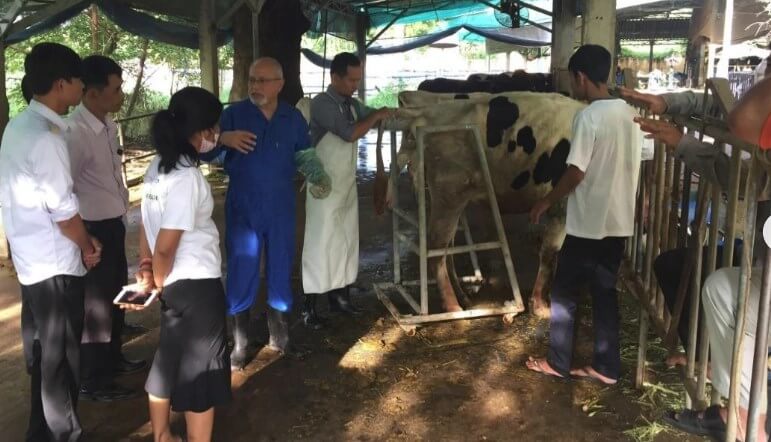Strengthening animal reproduction (Theriogenology) education and hands-on training for human and institutional capacity building in Cambodia
November, 2018 -, Cambodia

At We-Empower, we are pleased to announce the completion of our training-of-trainers in veterinary reproduction, or in technical terms “Theriogenology”, at the Faculty of Veterinary Medicine (FVM), Royal University of Agriculture (RUA), in Phnom Penh, Cambodia.
Prof. Mushtaq Memon, We-Empower’s Vice President for Livestock, spent two weeks in November, 2018 in Cambodia working with trainees as well as the FVM-RAU administration to strengthen the newly-established FVM.
The fourteen trainees were from:
- FVM-RAU
- Faculty of Animal Sciences
- General Directorate of Animal Health & Production
- Prek Leap National College of Agriculture
Prof. Memon’s 12-day training included classroom presentations and discussions, hands-on experience in laboratories, and on-the-farm training. The primary focus of the training was the reproduction of bovine (cattle) and swine (pig). Prof. Memon also covered the reproduction of other animal species as a comparative to the primary species, namely equine (horse), caprine (goat), ovine (sheep), canine (dog), and feline (cat). The training impact was then assessed using pre- and post-training assessments of the trainees.
The training was deemed a success on the basis of the trainees’ assessment tests and their evaluations of the instructor. The Theriogenology training was funded by the Feed-the-Future Innovation Laboratory in Livestock Systems, University of Florida, sponsored by the USAID Bureau for Food Security.

Prof. Memon (center) with Theriogenology trainees at the FVM-RUA, in Phnom Penh, Cambodia.

Prof. Memon offers classroom presentations and discussions on bovine and swine reproduction to Theriogenology trainees at the FVM-RUA, in Phnom Penh, Cambodia.

The animal reproduction trainees at the FVM-RUA appreciate a new “show-what-you-teach” approach, citing it as one of the better ways to understand and retain information presented in the classroom. Here, trainees examine a female pig reproductive tract acquired from a local slaughterhouse.

Prof. Memon gives a cow reproductive examination via palpation per the rectum on an RUA dairy farm.
